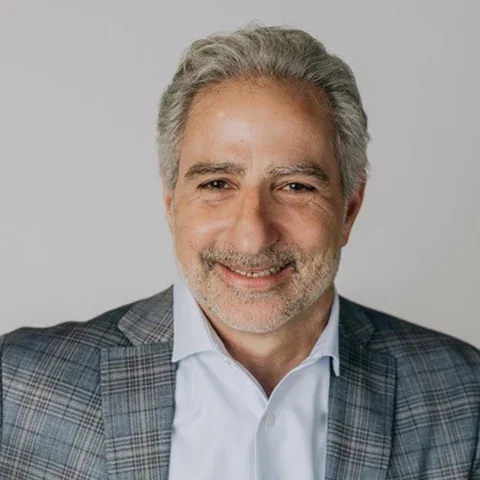The Warehouse ISR Experiment: High Costs, No Gains – Why California Must Avoid Indirect Source Rule Expansion
By Tim Jemal, CEO, Supply Chain Federation
California’s ports, warehouses, and logistics networks are the beating heart of the state’s economy, and a critical gateway for the nation. Yet, just as the supply chain continues to recover from years of disruption, the state is on the verge of making a costly mistake: applying the South Coast Air Quality Management District’s (SCAQMD) Warehouse Indirect Source Rule (ISR) controls to the Ports of Los Angeles and Long Beach, and possibly to other supply chain infrastructure statewide.
A new independent analysis by global consulting firm Ramboll, commissioned by the Supply Chain Federation, reveals a sobering truth: the ISR’s flagship program, the Warehouse Actions and Investments to Reduce Emissions (WAIRE), has failed to deliver measurable environmental benefits. Instead, it has driven up costs, disrupted operations, and put jobs at risk.
If California pushes forward with expanding ISR-style rules without addressing these failings, the result will be an economic and logistical self-inflicted wound that will ripple nationwide.
The Promise vs. The Reality
When WAIRE was launched, it was marketed as an innovative approach to reducing emissions from the goods movement sector. Warehouse operators would earn “WAIRE points” by investing in zero-emission trucks, solar panels, charging stations, or other approved measures, or they could pay a mitigation fee.
As the Ramboll study shows, in practice, WAIRE has produced no verifiable emissions reductions. In fact, even the U.S. Environmental Protection Agency under the Biden Administration stated it “did not find a sufficient basis to credit Rule 2305 with achieving a specific amount of emissions reductions.”
So, where have the emissions improvements come from? Largely from existing statewide regulations already in place, like the Truck and Bus Rule, Low Carbon Fuel Standard, and Advanced Clean Trucks program, not from WAIRE compliance.
Overstated Benefits, Undercounted Costs
Ramboll’s analysis found that the benefits were overstated. For example, it was credited with far greater emissions savings from yard trucks and zero-emission vehicles than actual usage patterns support. Solar panel benefits were similarly exaggerated.
Meanwhile, compliance costs have exploded. For smaller warehouse operators, many of whom don’t own their buildings or control the trucks serving them, the only practical option is to pay the mitigation fee, which functions as a steep tax on operations.
These costs inevitably cascade through the supply chain, landing on shippers, retailers, and ultimately consumers in the form of higher prices.
Risk to Jobs, Competitiveness, and the Environment
WAIRE also poses a dangerous, unintended consequence: emissions leakage. As operators look for relief from rising costs and regulatory complexity, some are considering moving operations to less-regulated regions. That shift means longer truck hauls, more congestion, and, ironically, higher overall emissions.
Layer on the threat to local jobs, particularly in communities that depend on warehousing and distribution, and you have a policy that fails on economic, social, and environmental fronts.
A National Risk
If California proceeds with ISR expansion as planned, other states are likely to follow suit, creating a patchwork of conflicting regulations that will hamper national supply chain efficiency. For ports and maritime shipping, this means more friction in moving goods from dock to door, costing time, money, and competitive advantage.
A Smarter Path Forward
Let’s be clear: the supply chain industry supports clean air and environmental stewardship. But those goals must be pursued through policies that are both effective and economically sustainable. WAIRE fails that test.
That’s why the Supply Chain Federation has launched a National ISR Working Group, bringing together port stakeholders, industry leaders, environmental experts, and policymakers to develop alternative approaches that truly reduce emissions without undermining the competitiveness of our ports and supply chain.
We have the expertise, the technology, and the willingness to lead on solutions. But regulation for regulation’s sake, without measurable benefits, will only harm the very communities and environments we aim to protect.
California’s ports are the front door to the global economy. If we burden them with policies that cost more than they deliver, we risk closing that door to opportunity and growth. The results of the Ramboll study offer a clear warning that we can’t afford to ignore.
The commentary, views, and opinions expressed by Time Jemal are his own and do not reflect the views or positions of the Pacific Merchant Shipping Association. PMSA does not endorse, support, or make any representations regarding the content provided by any third party commentator.
About Tim Jemal
Tim Jemal brings decades of leadership experience and a powerful voice in advocacy. His tenure as CEO of NAIOP SoCal has been distinguished by significant organizational growth and policy impact, where he has stood strong for industrial and logistics operators and successfully challenged policies that threatened economic vitality. In addition, Tim has worked extensively across the country and in Washington, D.C., helping to scale mission-driven organizations to meet the needs of their members.
About the Supply Chain Federation
The Supply Chain Federation is a national association of logistics companies, warehouse operators, and goods movement partners dedicated to building a cleaner, more resilient, and more efficient supply chain in California and throughout the nation. Read more at the Supply Chain Federation website.

